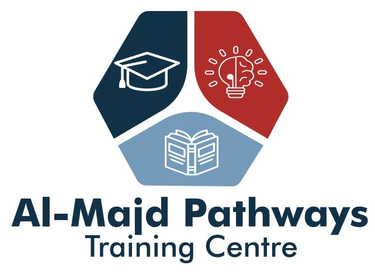
Advanced Problem Solving and Decision Making
Analysis, Design and Leadership
£4800.00
Why this Training Programme?
In the realm of effective leadership, the ability to make sound decisions at the right time is paramount. Modern leadership is often likened to that of a "design architect" who strives to craft a sustainable future in a world marked by uncertainty. Achieving this demands not only balancing personal perspectives with collective wisdom but also considering the emotional repercussions of decisions. In our interconnected world, where global change and political instability prevail, decisions reverberate across boundaries. It is, therefore, essential for leaders to comprehend the psychological intricacies and wield a repertoire of tools for sound decision-making.
Our programme, "Advanced Problem Solving & Decision Making - Analysis, Design & Leadership," offers a structured journey from problem identification to solution generation, along with an exploration of creative techniques that challenge conventional outcome-oriented thinking. Participants will gain access to a diverse range of tools and insights to foster creative thinking within themselves, their teams, and their organisations. By the end of the programme, participants will leave not only invigorated but also with a profound belief in their creative potential. In essence, effective decision-making and problem-solving are at the core of successful management and leadership. Mastering these skills empowers you to lead your team and organisation to well-deserved success.
Highlights of the Al-Majd Pathways Centre (APC) Programme:
Understanding the psychological aspects of personality and their influence on decision-making.
Application of holistic thinking in the problem-solving process.
Generating innovative solutions to drive continuous improvement.
Assessing personal creativity and decision-making skills while overcoming limitations.
Uncovering the cognitive and interpersonal dynamics that underpin our thought processes.
Programme Objectives
Upon completion of the Al-Majd Pathways Centre (APC) programme, participants will be able to:
Apply pragmatic methods for effective problem-solving and decision-making.
Recognise how values, bias, and personality traits can shape the solutions we craft.
Utilise a structured approach to foster productive solutions.
Assess personal and organisational creativity, setting a roadmap for advancement.
Explore and employ various problem-solving techniques for creative solutions.
Develop the decisive skills that define competent and credible leadership.
Who Should Attend this Programme?
The Al-Majd Pathways Centre (APC) programme caters to a broad spectrum of professionals and individuals aiming to enhance their communication, interpersonal, problem-solving, and decision-making skills. It will be particularly beneficial for:
Professionals aspiring to broaden their cognitive thinking skills.
Team leaders looking to harness "collective wisdom" and cultivate collaborative practices.
Visionary leaders seeking to challenge and innovate within their organisations.
Senior executives navigating complex decision-making landscapes.
Novices aiming to harness diversity and promote collaboration.
Programme Delivery Method
The Al-Majd Pathways Centre (APC) programme adopts a multifaceted approach to adult learning, ensuring maximum understanding, retention, and practical application of the presented concepts. The programme emphasises experiential learning, allowing participants to apply theoretical knowledge in practical scenarios. It fosters interactivity, encouraging delegates to discuss challenges and generate potential solutions that can be implemented within their organisations. The programme is designed to accommodate professionals across various backgrounds, with a strong focus on leadership and the role of creativity in organisations.
Programme Curriculum
Day One: The Synergy of Decision Making and Problem Solving
Understanding leadership dynamics in decision making.
Leadership in the 21st century: Navigating the role of "decision architects" in shaping future performance.
Influencing factors: Values, bias, and ethical solutions.
Personality types and cognitive preferences in decision making.
Psychometric assessments to identify problem-solving preferences.
"Collective wisdom" as a structured approach for grounded solutions.
Day Two: Applying Structured Techniques to Organisational Challenges
Assessing personal problem-solving skills and cognitive strengths.
Employing whole-brain thinking for rational, informed, and balanced decision making.
Embracing flexible leadership and thinking for innovative ideas.
A structured problem-solving model: Balancing logic with emotional responses.
Managing unpredictable factors: Dynamic Tension, Decision Making, Newton's Laws, and Change Management.
Day Three: Embarking on the Journey of Continuous Improvement
Cultivating creative problem-solving for sustained improvement.
Embracing Appreciative Inquiry and fostering positive dialogues.
Solution Focus methodology: A transformative tool for business discussions.
Diagnostic tools for identifying and addressing organisational challenges.
Applying TRIZ techniques to innovate and enhance processes and products.
Harnessing the creative capacity of the millennial generation.
Day Four: Cultivating Creative Capabilities in Self, Teams, and Organisations
Challenging self-imposed assumptions: "How creative am I?"
Recognising the creative potential of introverts, often the "ENIGMA" within organisations.
Exploring the origins of good ideas: Contemporary examples from the world of technology.
Fostering and facilitating organisational innovation.
Nurturing a creative organisation: A menu of effective leadership practices.
Engaging in creative leadership dialogues to influence, persuade, and align teams.
Day Five: The Creative Leader in an Innovative Organisation
Leadership styles, cognitive processes, and outcomes of decision making.
Amplifying serendipity.
Ensuring alignment with corporate missions.
Evaluating creativity within your organisation and addressing obstacles.
Establishing "innovation champions" as a strategy to drive innovation and change.
Crafting a personalised plan for fostering workplace innovation.
Language(s): English and Arabic
Duration: One Week
Certificate of Completion: Upon successful completion of the programme, participants will receive an Al-Majd Pathways Centre (APC) Certificate of Completion.
Get in touch with us today.
Follow
Sign-up for our newsletter
0044 7466410010
©2025 All rights reserved.
